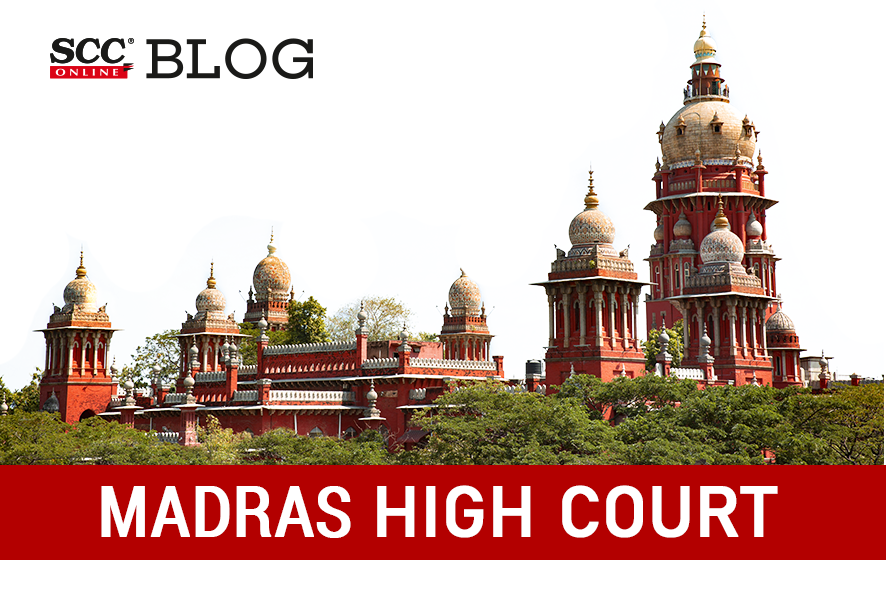Madras High Court: In a writ petition filed by a mother on behalf of her child, seeking issue of directions to the respondents to ensure the admission of the child diagnosed with Autism Spectrum Disorder (‘ACD’) in an educational institution/School, the Single Bench of C.V. Karthikeyan, J., said that it was the duty of an educational institution to extend arms to children with special needs.
Background
In the present matter, the petitioner is a child with special needs diagnosed with mild ACD. In her psychological assessment by National Institute for Empowerment of Persons with Multiple Disabilities (‘NIEPMED’;), the child was encouraged to continue with schooling and socialize with peers.
The mother of the petitioner approached the School seeking admission of her child, after which a written examination and an interview of the child was taken by a committee. Subsequently, the school denied admission to the child stating they had no special educators available, also detailing low scores received by child.
It was contended that the school website boasted of providing support to children with special educational needs, and that the school’s affiliation would be revoked if it was found to deny admission to children with special needs as it would be in contravention with Persons with Disabilities (Equal Opportunities, Protection of Rights and Full Participation) Act, 1995.
Issue
Whether the Court can call upon the educational institution to admit the child subject to statement on their website, as well as, the provisions of the Rights of Persons with Disabilities Act, 2016 (‘Act, 2016’) and the National Trust for Welfare of Persons with Autism, Cerebral Palsy, Mental Retardation and Multiple Disabilities Act, 1999 (‘National Trust Act, 1999’)?
Decision and Analysis
The Court took note of the recommendations made by NIEPMED with respect to the child’s diagnosis: “To continue education in an inclusive school setting with adequate motivation and support”.
The Court noted the definition of ‘inclusive education’ under the Act, 2016 as:
“2(m) ‘inclusive education’ means a system of education wherein students with and without disability learn together and the system of teaching and learning is suitably adapted to meet the learning needs of different types of students with disabilities.”
Further, the Court drew attention to definition of ‘autism spectrum disorder’ as under the Act, 2016:
“Autism spectrum disorder means a neuro-developmental condition typically appearing in the first three years of life that significantly affects a person’s ability to communicate, understand relationships and relate to others, and is frequently associated with unusual or stereotypical rituals or behaviours.”
The Court also noted the relevant duties of educational institutions under Section 16 the Act:
“The appropriate Government and the local authorities shall endeavour that all educational institutions funded or recognised by them, provide inclusive education to the children with disabilities and towards that end shall:
(i) admit them without discrimination and provide education and opportunities for sports and recreation activities equally with others.”
The Court noted that during the court proceedings the School offered to provide admission to the child, as well as, appoint special educators for children with special needs.
The Court found that the statement about willingness to appoint teachers trained to teach children with special needs had been made only to brush under the carpet the earlier stand of refusal to look after such children.
Placing reliance on Avni Prakash v. National Testing Agency, (2023) 2 SCC 286, the Court observed that Courts have always been sensitive to children with special needs. They have expressed hope that educational institutions would not betray children with special needs and have called upon them to extend their arms to such children. However, the School has failed to perform this duty and betrayed the Christian faith the school is affiliated to.
The Court left the matter to the conscience of the School, and noted that the State Government had helped the petitioner’s mother in identifying three separate schools wherein the child could be admitted.
The Court asked the mother of the petitioner to make the final choice between the available options as the Court could only express its views and not force someone to attend a certain school.
The Court said it hoped that the said School would not hold out against the child for this litigation and the financial burden of appointing special educators.
Thus, the Court disposed of the writ petition.
[The Child v. State of Tamil Nadu, 2023 SCC OnLine Mad 1308, decided on 22-02-2023]
Order by: Justice C.V. Karthikeyan
Advocates who appeared in this case :
For Petitioner: Advocate N. Manokaran;
For Respondents: Additional Government Pleader U. Baranitharan, Advocate David Sunder Singh.







